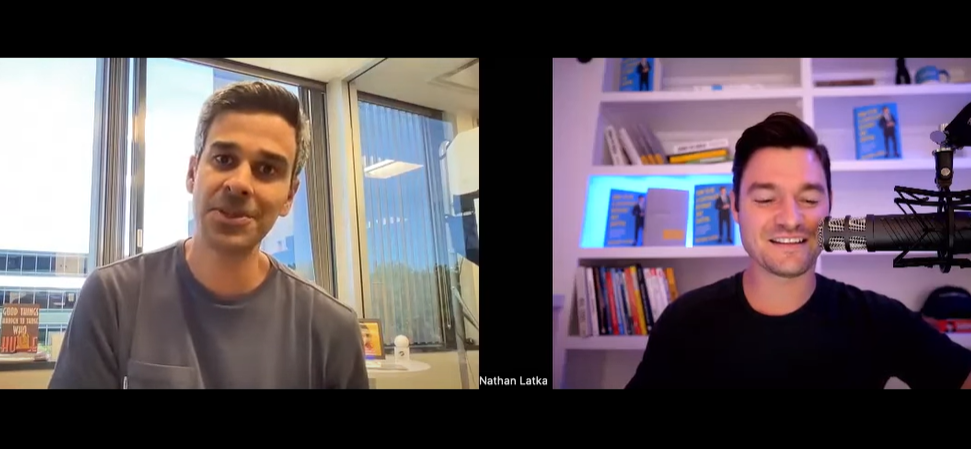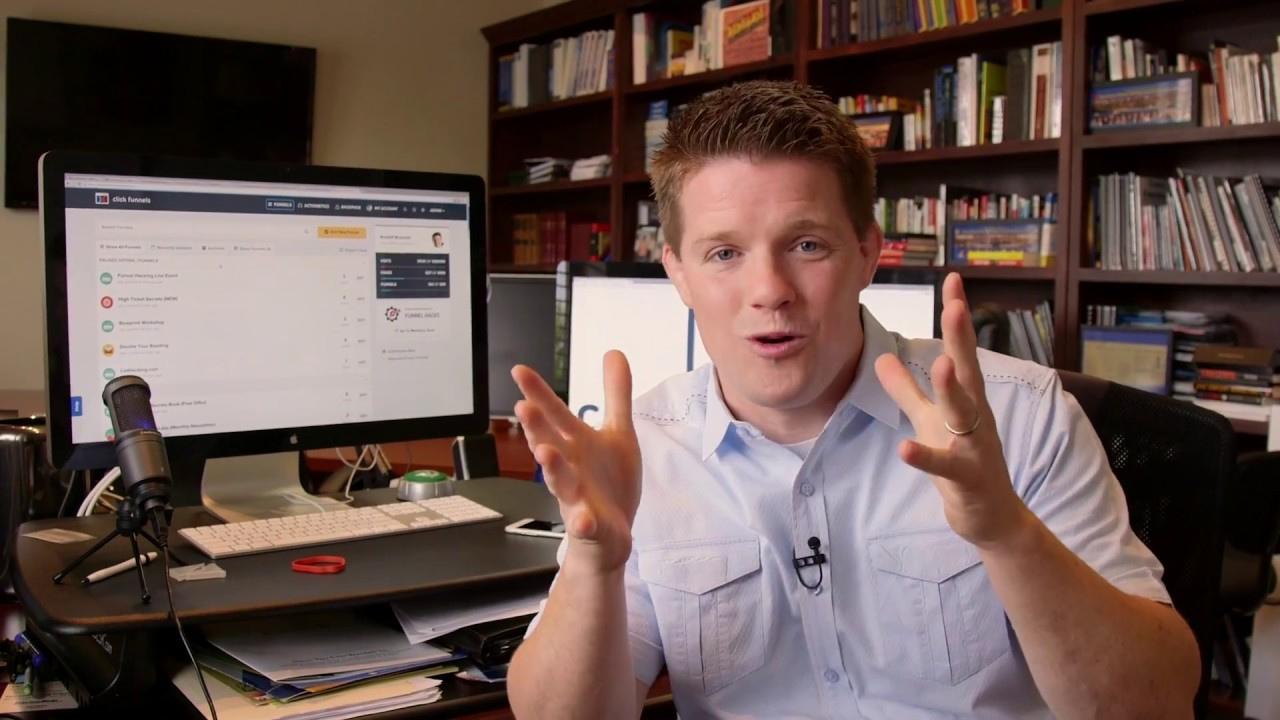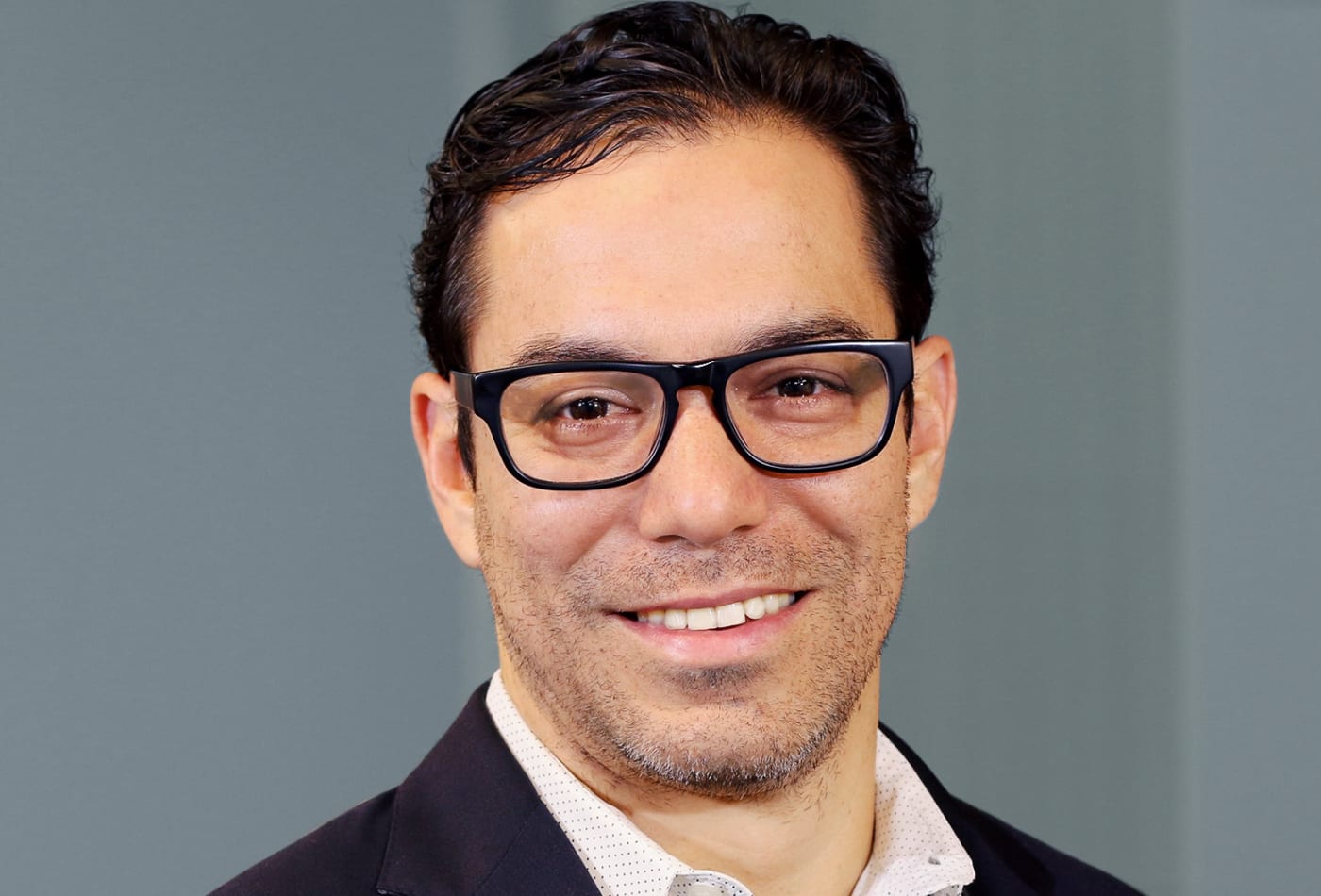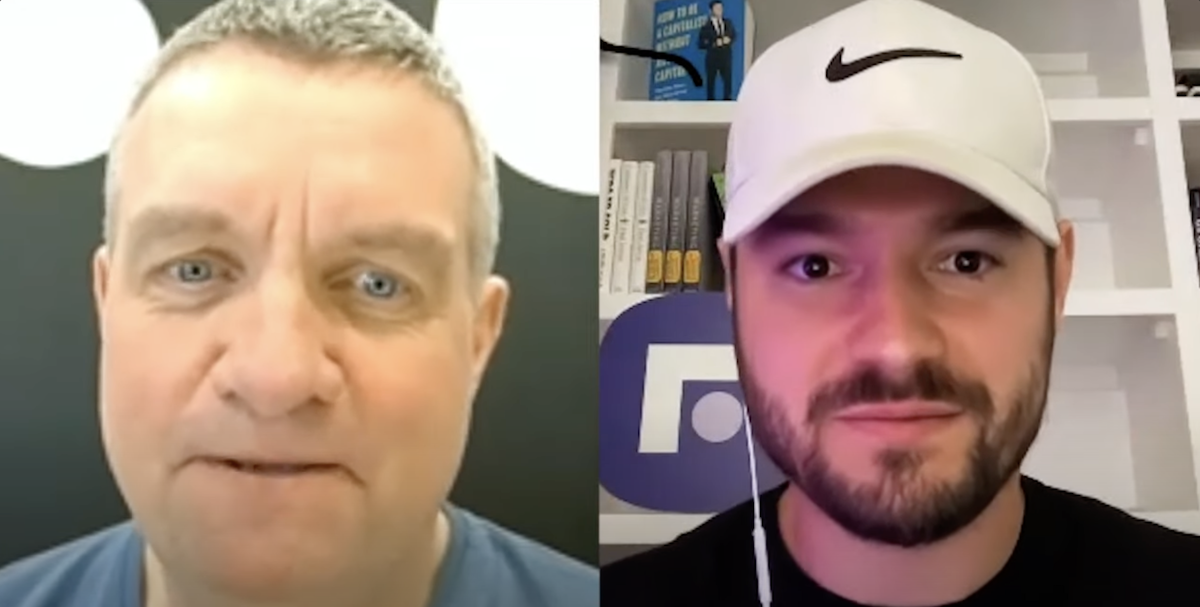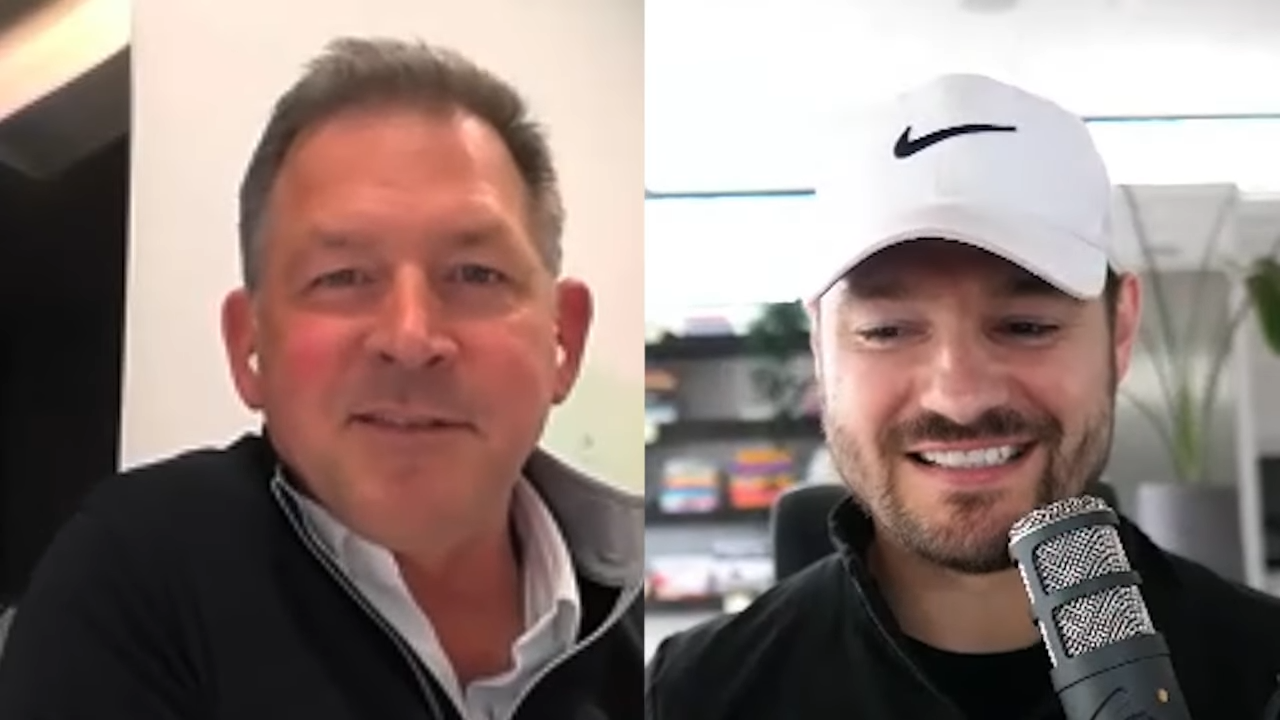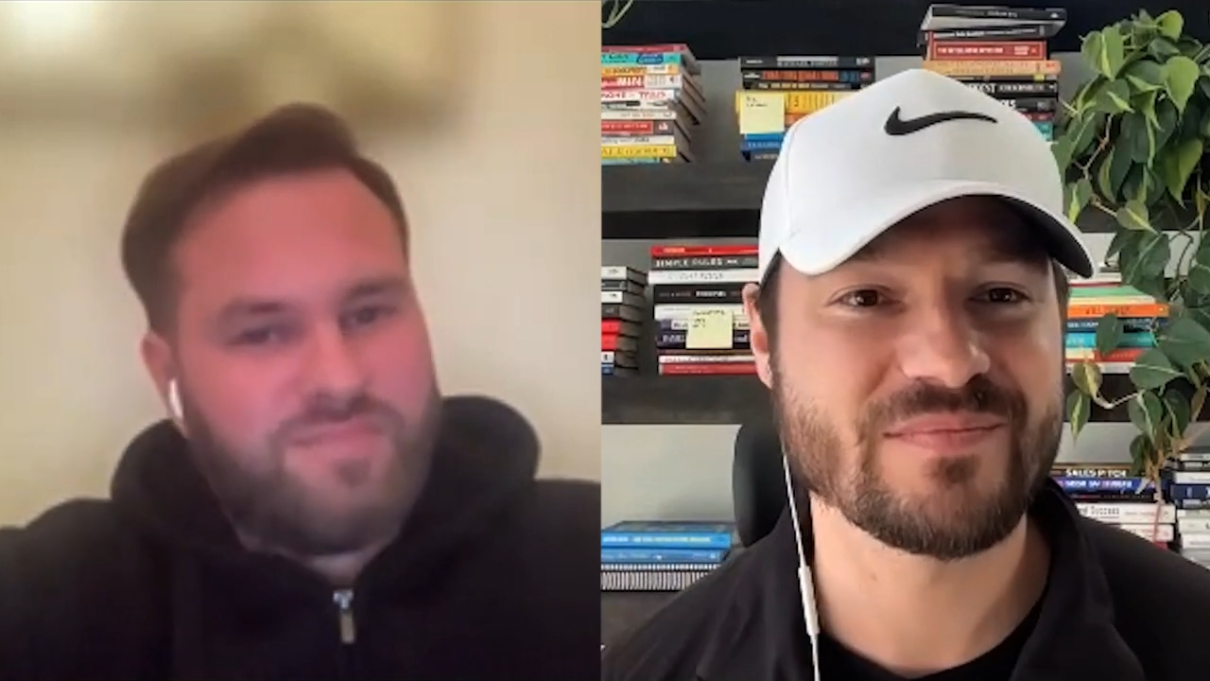ServiceMax is a unique SaaS company that has multiple verticals on both the product and service side. ServiceMax empowers companies by smoothly transitioning their digital transformations. As a leader in asset-centric field service management, they increase the faster time to value with lowers risk.
Nathan Latka sat down wth Neil Barua, CEO of ServiceMax, as he shared his strong insights on the exponential growth of his company, reaching 150M run rate this year.
- Founded in 2007, it hit 26.3mm in rev in 2018 (GE acquisition), 150mm in 2022.
- 25% annual dollar expansion
- over 30k monthly ARPU
Nathan Latka (00:00):
Hey folks. My guest today is Neil Barua. He’s the chief executives officer at ServiceMax and a member of the board of directors. He’s got an extensive background in the tech industry and proven track record of growing businesses. Previously, he was a CEO of IPC Systems, and during his tenure sold the company and led a SaaS and data transformation of the company. More recently, he served as an operating partner at Silver Lake, the global leader in technology investing. Earlier in his career, he was part of John Legere’s leadership team that helped transform Global Crossing through consistent growth. Neil, you ready to take us to the top?
ServiceMax CEO Neil Barua (00:27):
Let’s do it, Nathan.
Nathan Latka (00:29):
You were before my time, I was born in ’89. What was Global Crossing?
ServiceMax CEO Neil Barua (00:33):
Oh, you’re a young one. I’m actually turning 45, so now I’ve become the old guy in the room. But Global Crossing was a very infamous telecom company that actually the world is benefited by now. They laid undersea cables by which internet was able to go across continents. And it was one of the hottest startups, by the way, I think the fastest to get to 15 billion of market cap at the time, startup that was formed by a founder called Gary Winnick. And I actually came to Global Crossing the day the company was declared bankrupt. So that was my first day was the dot com boom happened, and the bust happened and Global Crossing had its financial issues. And the CEO that I became part of, John Legere, would ultimately also be CEO of T-Mobile, who did a great job over the last number of years, him as well as the leadership team, which I was part of, we restructured the company and ultimately sold it to Level 3 about eight years later. So it was a little ahead of its time, but we got it back on its firm footing and it’s doing great things for the world right now.
Nathan Latka (01:42):
Well, congrats on that. I wanted to obviously now shift back to ServiceMax. I wanted to congratulate you, but my research is a little confusing. There was a PR piece put out September 10th, 2021 that says it was announcing your second quarter fiscal year 2022 results. But I don’t know how you can have a press release before 2020 hit. But you broke a hundred million dollar run rate effectively in that release. So I want to congratulate you, but where am I wrong? Why is my timing messed up?
ServiceMax CEO Neil Barua (02:06):
In the enterprise scale SaaS world that we’re in, like Salesforce when they put out their earnings release, the fiscal year is actually a year ahead because our fiscal ends end of January, and so it’s a little cludgy, but we didn’t get the math wrong. It was within calendar year ’21/’22. So we are very happy about the progress of the company for sure. And way above a hundred million right now, as I look at the ARR as well, as we currently are at the company at ServiceMax.
Nathan Latka (02:36):
When was the last thing you guys disclosed publicly in terms of revenue run rate?
ServiceMax CEO Neil Barua (02:40):
We were getting very close to going public at the tail end of last year in December. And fortunately, we’ve got great investors. We’re owned, as I said, by Silver Lake who owns about 80%, or a large percentage of the company, as well as GE and then Salesforce Ventures. And we created a process to go public. Thank God we didn’t go public because of what we’re watching in the marketplace. And as a private company, we’re able to still stay focused on customers and our employees versus all the mayhem that’s going on with public companies. But I think the last disclosure we made was we were approaching 150 million plus of ARR.
Nathan Latka (03:19):
Really, when was that?
ServiceMax CEO Neil Barua (03:20):
So really proud of that, as well as getting operating profit and free cash flow positive as well. It’s a big point of differentiation that we’ve done over the last three and a half years as a standalone company coming out of GE.
Nathan Latka (03:30):
No, that is impressive. But when did you announce that you passed 150 million dollar run rate? Do you know?
ServiceMax CEO Neil Barua (03:34):
I think November of last year, our last disclosure.
Nathan Latka (03:37):
November. Okay. Interesting. Yeah. Now it’s obviously hard to grow, most companies I have on are doing 10, 20, 30 million bucks in ARR, they’re venture backed, they need to be growing a 100%, 200% year over year. It’s hard to grow 150 million bucks to 300 year over year. What’s a company like you target in terms of year over year growth rate?
ServiceMax CEO Neil Barua (03:52):
Our Q1 run rate, we’re private company, but I target it as 30% plus on organic growth that we’ve been getting out of the business. So we’ve been doing a 20 to 35% is the vicinity where at scale it starts to make sense. Plus then view around profitability and free cash flow, which we’ve been really focusing on as well in addition to the growth, Nathan.
Nathan Latka (06:42):
And that makes sense, considering your pedigree coming out of Silver Lake, which we’ll get to more in a second. But first, let’s am out on product here for a minute. What is ServiceMax doing? Who are you selling to, and what are they getting?
ServiceMax CEO Neil Barua (06:51):
This is the best part of the conversation in my opinion. So the company was formed 15 years ago by much smarter people than me, founders Athani and Hari built the company actually. And was one of the hottest startups, which ultimately got sold to GE, I think in 2016, Nathan, for close to a billion dollars. So did a phenomenal job with answering a question, which is what we still do. A hundred percent focus within the field service management marketplace, where in essence a product… So I’ll give you a real example. I think this will kind of resonate with all your viewers and yourself. Philips Healthcare, which basically does most of the medical equipment when you and I or our parents go to the hospital, a lot of the equipment is actually built by Philips Healthcare. So Philips Healthcare is great customer of ours. They’ve procured our SaaS offering by which they have their technicians that fix those products and those medical equipment in those clinics or hospitals.
ServiceMax CEO Neil Barua (07:48):
Our software allows the technician to actually get scheduled, route the right technician to the actual appropriate hospital that needs fixing, get to the equipment. And within the equipment, Nathan, we within ServiceMax allow the technician to see what part to fix, what’s actually covered by warranty. When do you actually close out the job by which the customer gets notified? When do you actually then come back and maybe do additional maintenance plans beyond the standard maintenance plan? So gives Philips Healthcare an ability, which is very important to have that service revenue resilience and customer satisfaction to that clinic or hospital, by which if one of us or your parents or family members goes to the hospital, that equipment actually works. And that’s what our product does on a SaaS platform, as you know. And a very compelling piece, that we’re the leaders in the marketplace, six times magic quadrant leader for this specific niche, which is an awesome niche to be in, particularly with what’s going on in the world.
Nathan Latka (08:45):
Who’s in second and third place?
ServiceMax CEO Neil Barua (08:48):
I don’t even care about second and third place. I’m focused on our customers.
Nathan Latka (08:51):
Such a politician. That’s such a good answer. No free marketing for your competitors.
ServiceMax CEO Neil Barua (08:55):
They’re rear view mirror, Nathan. You can find them in some random podcast, not yours. It’s actually awesome. You got me on my soapbox. Like Carrier, a big company that does all the HVAC for commercial units plus also cargo ship cooling. So unbeknownst to many people, the cargo ship cooling industry is huge on transporting goods around the world. Our software, Nathan, allows for the uptime of those ships, by which with all the supply chain constraints, you then know that the coolers are actually working, a huge complex piece of equipment used by ServiceMax by the technicians to figure out what ships actually can actually transport the foods that we all need, particularly in this very trying time that the world is in. So really great stuff, and an honor to be the CEO of the company, given the importance of the software and what it does for our customers.
Nathan Latka (09:50):
Help my founders learn here. 2016, GE buys the company, obviously bullish at 915 million and billion, whatever you want to call the number, but then it’s just two years later, they’re now selling a major chunk of majority stake back to Silver Lake. So did GE just decide, “You know what? This is a sort of distraction. We want to get rid of it. It’s still valuable.” Why buy it and then sell it two years later?
ServiceMax CEO Neil Barua (10:09):
They continue to be an investor in our company, a minority investor. But GE, as you probably followed, went through a lot of stuff. They continue to go through a lot of stuff. Three, four CEOs went through that gamut during that timeframe. And they were divesting a significant portion of their company to generate and gather cash and focus back into their niche of what actually created GE, what was it, 150 years ago? So ServiceMax was a very tip of the spear for them to be a digital software company. And as we’ve seen, they’ve reverted back to their industrial roots. Having a software company of our scale, of our expertise made sense to be at another company. And that’s why they engage with our current owners to figure out how could they get cash on their balance sheet and also let us do the things that we are currently doing? Quite frankly, we’re a big provider of many GE business units, their ultimate utilization of our software for their field techs as well, Nathan. So a real win-win at the time and a great deal struck by our investors, quite frankly.
Nathan Latka (11:12):
Yeah. So how did GE keeps 10%? Is Silver Lake the sole buyer, the other 90%, or are their other financial backers here?
ServiceMax CEO Neil Barua (11:18):
Salesforce Ventures came into the business as well, I think two and a half years ago.
Nathan Latka (11:25):
Interesting. Okay. We talk about founder product fit, how do you end up inside of ServiceMax? It sounds like you were at Silver Lake first.
ServiceMax CEO Neil Barua (11:34):
Yeah, so I’ve spent a small amount of time as an operating partner. IPC actually was owned by Silver Lake initially, and I became the CEO of that company when Silver Lake was the majority owner of that company. We then transformed that business, was able to transact and sell the business to another buyer. And I then came back to the homestead at Silver Lake and ultimately got involved in another number of deals. And I raised my hand and said, “Put me in, coach. I see you guys were able to strike this deal with ServiceMax. You need a new executive team. I want in the game.” I like running teams, Nathan. I don’t like being in anything other than the environment that I’m in. And I said, “Look, if the opportunity exists, put me in and let me run the company,” because it’s something very unique that I hadn’t seen previously in my career. So I really wanted in to make a difference in the company. And for the last three and a half years, this team’s done a remarkable job so far running ServiceMax. So pretty proud of the progress we’ve made.
Nathan Latka (12:34):
How many folks are on the team now today?
ServiceMax CEO Neil Barua (12:36):
We’ve got like 580 people.
Nathan Latka (12:38):
How many engineers?
ServiceMax CEO Neil Barua (12:40):
Engineers are 250 of that.
Nathan Latka (12:42):
Okay, interesting. Now you’re not a pushover on your talent then, and you have a lot under your belt. So you’re asking for equity coming into this deal. How’s a guy like you trying to negotiate a position in a thing like ServiceMax? How much equity do you come in and ask for?
ServiceMax CEO Neil Barua (12:54):
Yeah. I’m not going to tell you that the equity piece… It’s actually something I’ve forgotten, quite frankly. As I said, I’m going to turn 45 in a month or so, and I’m at the position of my life where I’ve been lucky to have been in very significant positions before ServiceMax. I kind of started a little early. And I’m now really focusing on, how could I scale this team? How could I ensure that our team is actually getting all the things that I got for the last 20 years? And the mission of what we do, Nathan, for our customers, it’s really the thing that gets me up at night. So this isn’t a go make money and figure out how to transact. For me, and this is why I said put me in coach, this is a company that’s going to make a difference for a long time. I don’t want to leave for a long time. This is a company I want to, quite frankly, if I can, retire at. And there’s so much runway for the business that we’re doing. So that’s how I looked at it, Nathan, versus the dollars and cents behind it.
Nathan Latka (13:49):
Fair enough. You’re a nice guy. How many customers now today?
ServiceMax CEO Neil Barua (13:53):
We’ve got close to 400 now, enterprise customers, all enterprise B2B and large enterprise, to give you context.
Nathan Latka (14:01):
In the press release, when Silver Lake came in, it also said 400 customers. That was several years ago. So you’ve either maybe churned lower ARPU and added higher AC folks, or you’ve expanded in the accounts to grow revenue. Which one was it?
ServiceMax CEO Neil Barua (14:14):
Yeah, we’ve done a great job around our retention rates are in the mid to high nineties. So we do a phenomenal job-
Nathan Latka (14:24):
Gross or net?
ServiceMax CEO Neil Barua (14:25):
Gross. We actually put a press release out for our net retention. Our net retention is in the 115 to 121% range. So it’s very nice. And what we’ve done as a team extremely well is we went to the Philips Healthcares of the world, Carrier, who predominantly, fascinating by the way, Nathan, is those customers many times, even those huge logos still are doing manual processes for the thing that I talked about as the workflow. So we’ve done a phenomenal job growing the wallet share of the existing customer base. And quite frankly, some of the customer count, as you’ve seen other companies, we look at the quality of that customer count. And of those 400 initially three and a half years ago, we’ve created a lot of new logo impetus to make up for the kind of customers that we quite frankly didn’t really address in the manner that we think we could grow into. So within that, underneath it is great retention, great upsell into the existing base. But we’ve done a really nice job on new logos as well to get the right customer set to grow into over the next 3, 5, 10 years.
Nathan Latka (15:28):
So moving forward, let’s say, just for the sake of a demonstration, you add no new customers, but you want to keep growing. And so you need to build product to upsell and add more value to your current base. What products would you go build? What are you thinking about?
ServiceMax CEO Neil Barua (15:39):
So one that we just released that has not seen the material revenue upside yet, but we will, and we’re seeing the current bookings occur… So that example I gave to you around the technician going to Philips Healthcare’s hospital where they install the equipment, we provide the software by which the technician sees on their mobile app and knows what to fix, when to fix and how to fix it. We now created and released a product called Engage where that same functionality, Nathan, and this is born out of the pandemic where technicians couldn’t safely go to the end sight, we are now giving the clinic the same utilization and the same UI to do a self help and self fix the asset versus a technician going out there. Or route, using our collaboration tool, to the experts that are remote at Philips to actually do a remote fixing of the actual assets. So one of the things we’re doing, and again, Philips is actually deploying this now to their end customer, so Philips is the customer record, they’ll take your licenses to give to those clinic or hospital staff that could do some of the self-help. We see that as a big impetus for the company in an area that, again, like you said, we’re creating larger wallet share of real need for our customers by developing very innovative solutions, which the R&D team’s done a great job doing.
Nathan Latka (16:59):
The Philips technician though, just to be clear, you’re not a marketplace, that technician isn’t employed by you and you’re matching in them with Philips when they need it, right?
ServiceMax CEO Neil Barua (17:04):
No, it’s the Philips badge employee.
Nathan Latka (17:08):
Okay. So yeah, they’re a full-time employee at Philips.
ServiceMax CEO Neil Barua (17:11):
Yep. So our model, the reason why you get such resiliency, if you create a great UI, create the right workflow, those technicians, the licenses are procured by Philips Healthcare, the head of service, head of IT as CFO, not the technician, and we’re not a marketplace. For the most part, complex assets, Nathan, for what it’s worth, since you opened that question, and we love this space, to serve a complex asset, you need a skilled technician to do that. And most of the time, 80% of the time, that’s a badged employee. 20% of the time, by the way, they will train third parties and certify them. They’ll just procure the same sort of licenses from ServiceMax as they would. They’ll manage their workforce, we’ll give them the licenses to do that.
Nathan Latka (17:56):
Interesting. How many individual technicians or service providers are managed right now, seats across your 400 customers?
ServiceMax CEO Neil Barua (18:04):
Yeah, at least 7.8 million technicians, let’s call it eight million technicians around the world. To give context to your question around that 400 customers, how much they could continue to grow, only three to 400,000 or thereabouts are technicians that are using ServiceMax. You might say, “Well, who’s using the eight million?” It’s actually not our competitors. We have smaller competitors. Most of it is still manual processes. You put these guys and gals out in the field and they’re using their spreadsheets or their clipboards to figure out how to solve an issue.
Nathan Latka (18:43):
So 7.8 million’s the market. You haven’t captured it. You’ve got about 300,000 right now.
ServiceMax CEO Neil Barua (18:47):
We haven’t captured it. Absolutely. Yep.
Nathan Latka (18:49):
Oh, I see. I see. Okay. Got it. I was going to say 7.8 million across 400 customers is almost 19,000 technicians per… I’m like that’s a big staff.
ServiceMax CEO Neil Barua (18:57):
No. That’s, why the runway’s so long here is those technicians aren’t actually using a competitor tool. They’re using pen and paper and Excel.
Nathan Latka (19:04):
Yeah. That’s still big though. If you’ve got 300,000 seats across 400 customers, that’s still an average of 750 service providers per logo you’re managing today.
ServiceMax CEO Neil Barua (19:11):
Yeah, it’s great.
Nathan Latka (19:12):
That sounds healthy to me. Interesting. I love how you talk about economics and profitability and free cashflow. Rule of 40 is obviously a popular metric in publicly traded SaaS, I imagine you thought about this back end of last year. Where are you guys at right now? Or last you disclosed it, where are you in terms of rule of 40?
ServiceMax CEO Neil Barua (19:26):
Yeah. Since we’re a private company and we’re growing at the pace that I’m talking about, we’ve been fortunate enough, as we’ve been scaling into free cash flow positive, the pinpointing for a Wall Street analyst to get at the end of Q2, a rule of 40, or rule of 50, rule of 60 is not the theme that we push on. Ultimately, it’s the progress of the business. We have very much in our line of sight, how do we get to 40, 50, 60? And if you look at those types of growth rates, it’s just a small inflection of free cash flow margin that we got to create to get to it.
Nathan Latka (19:59):
You think you can hit 40 this year?
ServiceMax CEO Neil Barua (20:03):
I’m not going to commit to any number at this current time. But what I will say is that as a private company, as we look at the long term in the runway, there is a real path for us to feel really good about feeling like achieving numbers in the rule of 40 plus. That’s definitely in our line of sight.
Nathan Latka (20:21):
Yeah. You already gave away one part of the equation, which is 20 to 35% growth. The question now is can you do that to be close to profitability, which would be sort of rule of 20, rule of 35.?And then if you can generate free cash flow, obviously you break rule 40 pretty quickly. So interesting to watch you guys.
ServiceMax CEO Neil Barua (20:34):
Yeah. Nathan, the good thing is, as every boardroom’s doing, is how do you balance up a company that’s growing in this space that at this pace with still free cash flow positive? Do you create more investment opportunity or do you do something to appease Wall Street at this current time? We’re thinking through the dynamic as everyone is right now, quite frankly. The space is getting awesome. Finally we’re getting some sanity to it.
Nathan Latka (20:56):
Yeah. Historically speaking, ServiceMax has not been a highly acquisitive company. LiquidFrameworks and Zinc are really only the two ones I know about. Backed by a private equity firm, you’d think you guys being the hub, there’d be many more spokes you’re bringing under your umbrella, especially right now, when you could argue software companies are cheap or cheaper to go acquire. Any M&A on your roadmap?
ServiceMax CEO Neil Barua (21:15):
We bought LiquidFrameworks, our biggest M&A deal since the company was formed. It’s in the oil and gas, renewable energy space, industrial services. And my theory, the reason why you’re not going to see the constant drumbeat of just buying companies, acquiring them, integrating them, particularly when it’s a mission critical application like this, Nathan, the headline that I’m buying a company doesn’t do any difference. It’s actually creating value for the customer. And as you know, it’s easy to do a deal within a deal structure. It’s much harder to make sure the customer’s really happy with now the combined entity. And we’re focusing on that. I will say, we’re watching the market very closely. We have an M&A filter and a target list that we take very seriously. And if things continue to get rational the way that we are starting to see in the private markets, this is going to be a great option for the strong to get stronger. But right now we’re focused on organic growth and making sure we run the business efficiently. It’s a big part of what I think we’re proud of over the last three and a half years of doing, Nathan.
Nathan Latka (22:20):
That was 148 million deal price back in November. Obviously, you want to keep talented folks around. Typically, there’s cash plus earn out plus stock. Are you able to share what portion of that was cash versus stock or earn out?
ServiceMax CEO Neil Barua (22:30):
No, I’m not.
Nathan Latka (22:32):
You guys haven’t talked about that publicly?
ServiceMax CEO Neil Barua (22:34):
I don’t think so.
Nathan Latka (22:35):
Okay. Fair enough. Let me see here. A lot of the press around what you guys were doing end of last year, you guys were talking about SPACs and stuff, which I would argue is just from a discipline perspective. Now you look at SPACs and you go, “Eh, are these things a big gimmick? What’s going on here?” Why even waste your energy and time even thinking about that at the end of last year?
ServiceMax CEO Neil Barua (22:57):
I think there’s two things that actually was the value of doing it. Number one is, we’re public company ready. And creating all the infrastructure, brought on a general counsel, brought a chief accounting officer. And having the hygiene and discipline to be thinking a public company is actually of real value. In addition to obviously having the private equity backed mentality, public companies go through different types of scrutiny. And that whole foundation laying is, I think, long term and really good thing, Nathan. Who knows when the public markets open up again. What we will have is the ability to actually execute on whenever that opens up, in the next year, two years, three years, four years, but that hygiene and foundation laying was really important. And I think accelerated some of the strength of the foundation to do things like M&A over the next number of years, to actually continue to think about the trade off of organic growth versus profitability.
ServiceMax CEO Neil Barua (23:52):
And I think that discipline was awesome. So when I look back at it, we chose not to go down and execute on the SPAC at the end, by the way, to be clear, but all the work that we did was huge. A hundred plus investors that never knew about ServiceMax, being able to talk to them like we are with you, Nathan, and going into the guts is always a good thing. And now we’re seeing the value of that, of people, investors that wanted to invest in the company as a public entity, now looking at it saying, “Hey, there’s an M&A target that seems really interesting to ServiceMax. I learned about it. Why don’t you go talk to these guys?” So I think the more people learn about ServiceMax, yourself, your viewers included, really fall in love with the actual business. And then the economic model is very alluring. And so more people know about it the better. And I think that’s the value. Looking back at it, of course, what’s happened in the SPAC market, you’d be like, “Man.” But we didn’t know that 2020, in hindsight. But we gained a lot from the process, Nathan, for sure.
Nathan Latka (24:47):
Yeah. That makes a lot of sense. Last question here before we wrap up. I would argue, I don’t know how you feel about this, but if you guys were to list today, I don’t know that it’d be super strong listing because look, you’re seeing mass evaluation range on net dollar retention. I understand 120 is fine, but best in class public, you’re talking 135, 140, 150. And they’re sometimes even growing at faster rates than 25 to 30% year over year. So how do you think about that balance? And do think you would do well today. Would you trade at more than 1.4 billion valuation if you IPO’d today, in your opinion?
ServiceMax CEO Neil Barua (25:20):
Yeah. Right now with what’s going on in the world, the best thing I’m telling my team and myself when we wake up, keep running this business. The progress that we’ve made over three and a half years, we continue that path. We’re serving our customers really well. The options exist for the company. Whether it’s public, whether we continue on the journey privately, whether we team up with another partner, just keep focusing on these customers. And we’re doing a bang up job. And if we just think about a single moment of valuation metrics, you think in a way that’s very short term, and we have the luxury thinking longer than that. So I believe that focus is going to reward the shareholders extremely well. And I think we’ll create a great company that will be one that we’ll all be proud of.
Nathan Latka (26:04):
Neil. Let’s wrap up here with the famous five number one. Favorite book?
ServiceMax CEO Neil Barua (26:08):
Favorite book. I’ve got a lot of biographies that I like. I don’t really have a-
Nathan Latka (26:14):
What’s the last one you read?
ServiceMax CEO Neil Barua (26:15):
The last one I read was the Jeffrey Immelt book actually, which was interesting. And yeah, I don’t really have a favorite book. I’m a big reader of nonfiction. So all magazines, if you want any magazine description, I have probably have subscription to all of them. And the print version by the way, Nathan. So I’m the only one remaining. It’s the print version.
Nathan Latka (26:41):
That’s awesome. We’ll have to send you… I don’t have any copies laying around here right now, but we’ve got a version that is only SaaS…. Here we go, only SaaS focused. We’ll have to ship you a copy.
ServiceMax CEO Neil Barua (26:50):
Please do.
Nathan Latka (26:51):
Number two, CEO you’re following or studying?
ServiceMax CEO Neil Barua (26:53):
CEO I’m following. I got to meet Brad Smith that ran Intuit a couple weeks ago, and I was just blown away. So I’ve been doing a lot of following of Brad Smith and what he did at Intuit, and had the opportunity to spend a number of hours with him. So look him up. Great, great CEO, and someone that is paving the path for people like us.
Nathan Latka (27:15):
Number three, favorite online tool you used to build ServiceMax.
ServiceMax CEO Neil Barua (27:19):
Favorite online tool. We’ve got my commercial, we’ve got an awesome tool called Zinc, the collaboration tool that our engineers use, our sales people use. Get Zinc, it allows you to run a more efficient company, particularly in this world that we live in, where it’s a hybrid approach.
Nathan Latka (27:35):
Number four, hours of sleep each night, what’s the average?
ServiceMax CEO Neil Barua (27:38):
Six, five and a half. Last night, four. The kids got up. I got a nine and seven year old and a puppy and a CEO job with everything going on, so it’s fun.
Nathan Latka (27:49):
Wow.
ServiceMax CEO Neil Barua (27:49):
And job that with everything going on. So it’s fun. Sleep is for the weak. Sleep is for the weak.
Nathan Latka (27:54):
Married, two kids. And Neil, how old are you?
ServiceMax CEO Neil Barua (27:57):
I turn 45 in July.
Nathan Latka (27:59):
Take us home, something you wish knew back when you were 20.
ServiceMax CEO Neil Barua (28:04):
That it’s a long, long road. And the quick wins are good at the moment, but it’s the journey that matters. It’s truly in the relationships you make.
Nathan Latka (28:15):
Guys, ServiceMax launched back in 2007. GE bought it for about a billion dollars in 2016, then spun it out in 2018. That’s when Neil came into the picture, now focused on driving consistent, responsible growth here. They’re not burning crazy amounts of capital. North of 150 million run rate today, serving 400 customers, focused on providing them more value. He serves, and right now believes there’s about 700.8 million technicians in the world. This is the technician Philips might recruit to go fix a piece of equipment at their physical location. Right now, only 300,000 on ServiceMax. A lot of expansion opportunities there. Right now, net dollar retention, 120, 125. So again, room to expand there as well. Building a disciplined company here with about 580 employees, 250 engineers. We’ll see what Neil does next. Neil, thanks for taking us to the top.
ServiceMax CEO Neil Barua (28:58):
Thanks, Nathan. Appreciate the time.
